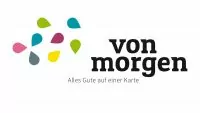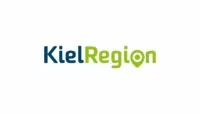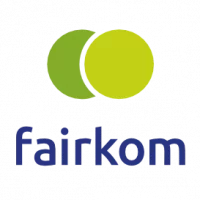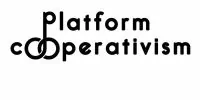The WECHANGE Cooperative
We enable change. Together. With you.
We are not a unicorn and we do not want to become one. The Internet is too important to make short-term profits at the expense of the users* or to leave it to a handful of big data and software companies. That is why we have chosen a different path and founded a cooperative in 2016. And with that, we fixed several bugs with one stone:
Not profit driven:
we offer our services at cost-covering prices.
The data is yours:
we don’t rely on data-driven business models.
No sellout:
unlike digital start-ups, we do not plan an exit to cash in.
Co-ownership:
WECHANGE belongs to the members – and therefore to itself!
Co-determination:
the community helps shape the cooperative’s course.
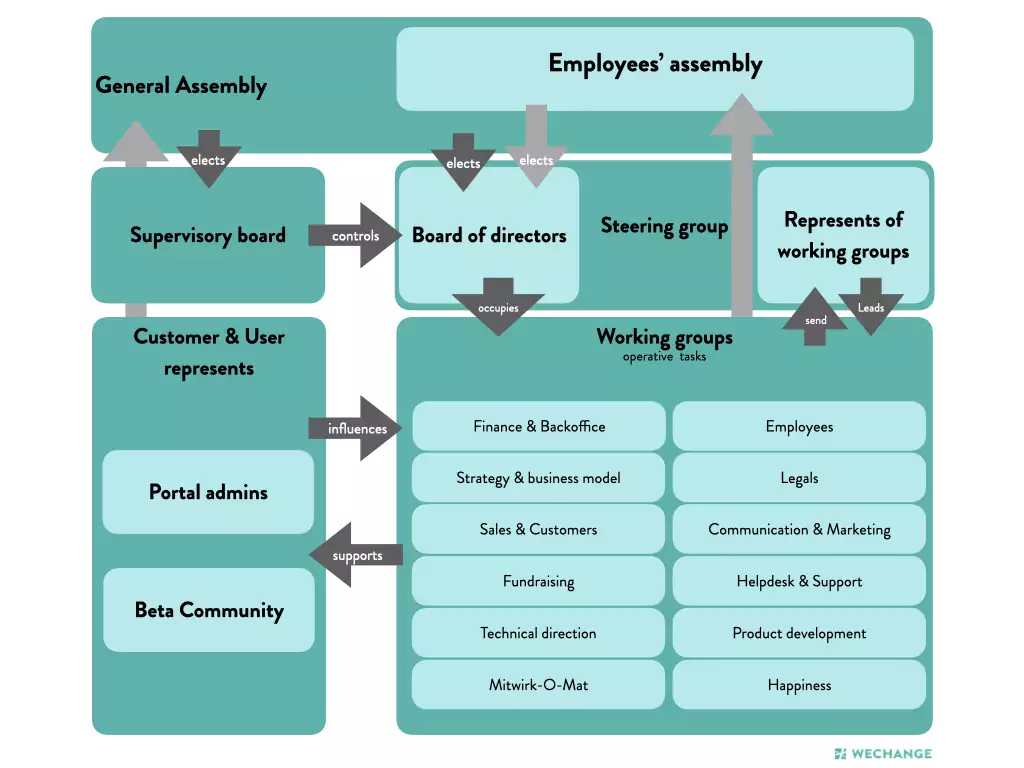
“The cooperative should be orientated towards the basic principles and guidelines of the economy for the common good.”
§ 1 Name and Place of Residence
(2) The place of residence is Berlin.
§ 2 Object
(1) The object of the Cooperative is the provision of an online collaboration platform for ecological and socially oriented actors, the development and spreading of the necessary software and hardware, as well as the services associated with this. In particular, the goals are:
-
-
- Collaboration: provision of all essential tools for online cooperation
- Networking: facilitation of synergies through networking of actors and resources, as well as
- Presentation: publishing and spreading of relevant information
-
(2) Business with non-members is permitted.
(3) The Cooperative can participate in other businesses, if this serves to support its members.
§ 3 Founding Principles
(1) The Cooperative commits to the promotion of global thinking and local action through information exchange and networking. In particular, it shall support civic participation and engagement with civil society.
(2) The Cooperative shall guarantee data security allowing for freedom of information.
(3) The Cooperative shall place all knowledge produced by them under an open licence, that allows third parties to use and develop it further free of charge, as long as they in turn put it under an equivalent licence. In particular, all software produced as part of the cooperative shall be placed under an appropriate open source licence, as far as security and data protection considerations allow.
(4) The Cooperative shall enable all users of the platform to contribute content to its further development. In particular, the board will set up specific working groups that can develop suggestions for further development. The board regulates the organisation of these working groups.
(5) The Cooperative shall behave fairly, both externally (towards clients, partners and third parties affected by corporate activities), and internally (payment and treatment of employees).
(6) The Cooperative shall always make sure in the selection of their partners that they also act according to fair and ecological principles. The criteria for selection shall be published on the website and open to comments.
(7) The Cooperative commits itself in all corporate activities to act sustainably and to economise resources and to give preference to environmentally and climate-friendly options.
(8) The Cooperative is committed to systematic transparency in all their activities, especially with regards to the publishing of all relevant business numbers as well as information on corporate activities, corporate partners and subcontractors via the website, as long as this would not violate legal guidelines, nor make a member of the board or supervisory committee liable for damages or to prosecution.
(9) The Cooperative commits itself to respect people and their rights in accordance with the Universal Declaration of Human Rights of 1948, as well as all additional conventions, including the International Pact regarding civil and political rights and the International Pact regarding economic, social and cultural rights.
(10) Basis of the Cooperative shall be consent-oriented decision processes and organisational structures.
(11) The Cooperative shall orient itself around the fundamental values and guidelines of the economy for the common good.
(12) The Cooperative shall eschew cooperation with large investors insofar as they demand a share of the profits or participation in corporate decisions. This also applies to possible subcontractors of the Cooperative. Excluded from this are organisations, which have committed themselves to equivalent principles as in §3.
(13) The valid interpretation of these principles by the Board is to be published on the website and open to comments.
(14) Deviations from the founding principles are allowed only in exceptional cases, to be published by the Board and to be approved by the Supervisory Committee.
§ 4 Membership
(1) Members can become the following natural and legal persons and partnerships:
a) Founders of the Cooperative,
b) Employees of the Cooperative,
c) Clients of the Cooperative and
d) Supporters, especiallys users of the platform.
(2) To acquire membership, an enrollment declaration is required, which must be in written form. The Board takes the decision regarding its admission.
(3) Investing members can also become members insofar as the provisions of § 8 II GenG are fulfilled
are. The approval of these additionally requires the consent of the Supervisory Board.
(4) Membership ends through
a) termination
b) transfer of the entire business credit
c) death of a natural or the dissolution of a legal person or partnership or
d) expulsion.
§ 5 Share in the Business, Payments, Additional Payments and Admission Fee
(1) The share in the business costs 100,00 €. It is to be paid in whole immediately.
(2) A member can acquire up to a maximum of 250 shares.
(3) Members are not obliged to pay any follow-up payments.
(4) Through a resolution of the General Assembly, an admission fee can be established, which would be directed into a contingency fund.
§ 6 Allocation of Dividends, Contigency Fund and Statute of Limitations
(1) In case of an annual surplus, 20% of this surplus will be directed to the legal contingency fund, until it equals 100% of the amount of the shares.
(2) Any remaining annual surplus beyond that will be distributed as following:
a) 40% will be used for the further development of the wechange platform,
b) 30% will be donated to wechange projects (Paragraph 3) and
c) the General Assembly decides regarding the use of the remaining 30%.
(3) Through a poll on the wechange platform, at least one eco-socially oriented project will be chosen, to which donations will be given.
§ 7 General Assembly
(1) The General Assembly takes places at least once a year. It will be called by direct notification of all members in textual format, preferably by e-mail. Invitation must take place at least two weeks before the General Assembly, additions and changes to the agenda at least one week in advance. The notices are considered to have been on time, when they have been sent off two working days before the deadline.
(2) Every properly convened General Assembly is quorate, independent from the number of participants.
(3) Every member has a vote.
(4) Investing members have no right to vote and no active right to be elected in the General Assembly. Yours
passive right to vote is subject to the restriction of § 8 II 4 GenG.
(5) The General Assembly decides with a majority of submitted votes (a simple majority vote), abstensions and invalid votes are not considered.
(6) Changes to § 3, § 6 Paragraph 2 und § 7 Paragraph 5 can only be made with a majority of 90% of members present.
(7) Members can only be represented by other members of the Cooperative. The appropriate mandate is to be presented to the Board, preferably via e-mail, in front of the General Assembly. A member can represent a maximum of two other members.
(8) The General Assembly determines the leadership of the meeting based on the proposal of the Supervisory Committee. Counter proposals are allowed.
(9) Decisions will be minuted according to § 47 GenG.
(10) The General Assembly chooses the members of the Supervisory Committee and the usual period of office is two years. It ends with the selection of successors.
(10) The General Assembly chooses all members of the Board, with the exception of § 9 Absatz 3 and can recall them. The usual period of office is 3 years. It ends with the selection of successors.
§ 8 Online General Assembly
(2) Members receive the dates for the beginning and the end of the discussion and voting phases with the invitation to the Online General Assembly. The access details for participating in the discussion and voting will be sent to members on time before their begin.
(3) The Online General Assembly will be lead by a member of the Board, chosen by the Board.
(4) Discussions take place in a protected, closed users group. For every point on the agenda, discussion spaces will be set up, which can be arranged into sub-topics by the Assembly leader. The number and scope of discussion contributions are not limited. The discussions phase lasts at least fourteen days. The Board can schedule a longer discussion phase.
(5) The voting phase lasts seven days. Voting takes place openly and by name. The filing of a vote takes place via an electronic process that ensures the transparency and verifiability of the members’ vote. The exact voting process is determined by the Board. Every member can, up until three days before the beginning of the voting phase, submit their own proposals to already announced voting matters, as well as amend or withdraw already submitted proposals. The leader of the Assembly decides whether proposals are voted on alternatively or separately. After the voting period, the leader of the Assembly immediately establishes the result of the vote and shares it with members.
(6) The Assembly leader creates a protocol of the Online General Assembly that includes at least the following information:
a) the start date of the discussion phase
b) the start and end date of the voting phase
c) the names of the members who took part in the vote,
d) the wording of the proposals, the results of the vote and remarks that were explicitly requested to be recorded in the protocol.
The protocol is signed by the leader of the Assembly and the Board and published on the website of the Cooperative in a protected members-only section. A version without (6) c) will be published on the website. Objections to the protocol can be raised within seven days. The Supervisory Committee decides regarding the objection.
(7) Paragraphs 1 to 6 apply to an Online Members Meeting as preparation for a General Assembly.
§ 9 Staff Assembly
(1) The Staff Assembly consists of all employees of the Cooperative.
(2) The Staff Assembly is called by the Chair of the Supervisory Committee and shall meet at least once a year. The staff meeting can be convened on the day of the general meeting with the purpose of appointing a board member.
(3) The Staff Assembly chooses a member of the Board for 3 years and can recall them. This right exists only if the cooperative has at least ten employees. Beyond that, it has no right of decision.
(4) Every employee has a vote. The Staff Assembly decides with a simple majority.
(5) Employees can assign the right to vote. No proxy voter may represent more than two employees. Proxies can only be other employees of the Cooperative.
(6) On demand of 25% of the employees, an extraordinary Staff Assembly must be called by the Chair of the Supervisory Committee. The invitation must take place at least one week in advance in written form, preferably via e-mail.
(7) Every properly convened Staff Assembly is quorate, independent from the number of participants.
§ 10 The Board
(1) The Board consists of at least two members. A member of the Board is chosen by the Employee Assembly (if it has this right in the sense of § 9 III 2) and the rest by the General Assembly for a period of 3 years. Their reappointment is permissible. Until the Cooperative has at least ten employed staff members, all members of the Board will be chosed and recalled by the General Assembly.
(2) Members of the Board are authorised to solely represent themselves.
(3) The Board can make decisions in writing, by telephone or through electronic channels, if no Supervisory Committee member objects to the resolution.
(4) Service contracts with Board members are arranged by the Supervisory Committee following the guidelines of the General Assembly.
(5) The Board leads the Cooperative on its own responsibility. In its corporate policies it constantly has to observe the founding principles established in § 3.
(6) The Board needs the approval of the Supervisory Committee for resolutions regarding internal procedures, for the formation of the economic plan, as well as for unscheduled businees of more than 20.000 euros. This limit applies to recurring payments for the full amount until the end of the contract. Approval can be generally given for similar business activities.
§ 11 Supervisory Committee
(1) The Supervisory Committee consists of at least three members. The Supervisory Board shall elect a chairperson, a secretary and their deputies from among its members. The Supervisory Committee is represented individually by the Chair or by their Deputy.
(2) The Supervisory Committee is quorate when at least half of the members take part in the decision making. The Supervisory Committee can make decisions in writing, by telephone or through electronic channels, if no Supervisory Committee members objects to the resolution.
(3) The Supervisory Committee supervises and advises the Board and reports to the General Assembly.
(4) The General Assembly decides about possible renumeration for the members of the Supervisory Committee.
§ 12 Termination, Expulsion, Disputes
(2) Members who damage the Cooperative can be expelled.
(3) Members, who despite written demands to desist and under threat of expulsion, violate the founding principles of § 3, can be expelled.
(4) Members are obliged to share their postal and electronic address (e-mail address) with the Cooperative. Unreachable members can be expelled. This also applies to unavailiability via e-mail.
(5) The Board decides regarding expulsions. Objections to the decision to expel can be submitted within six weeks after its submission to the Supervisory Committee (limitation period). Only after the decision of the Supervisory Committee can the expulsion be legally challenged. The General Assembly decides regarding the expulsion of members of the Board or Supervisory Committee.
(6) In case of credit balance remaining after a member’s departure, carried over losses will be partially deducted. The maximum amount to be repaid is equal to the credita balances paid in.
§ 13 Notice



